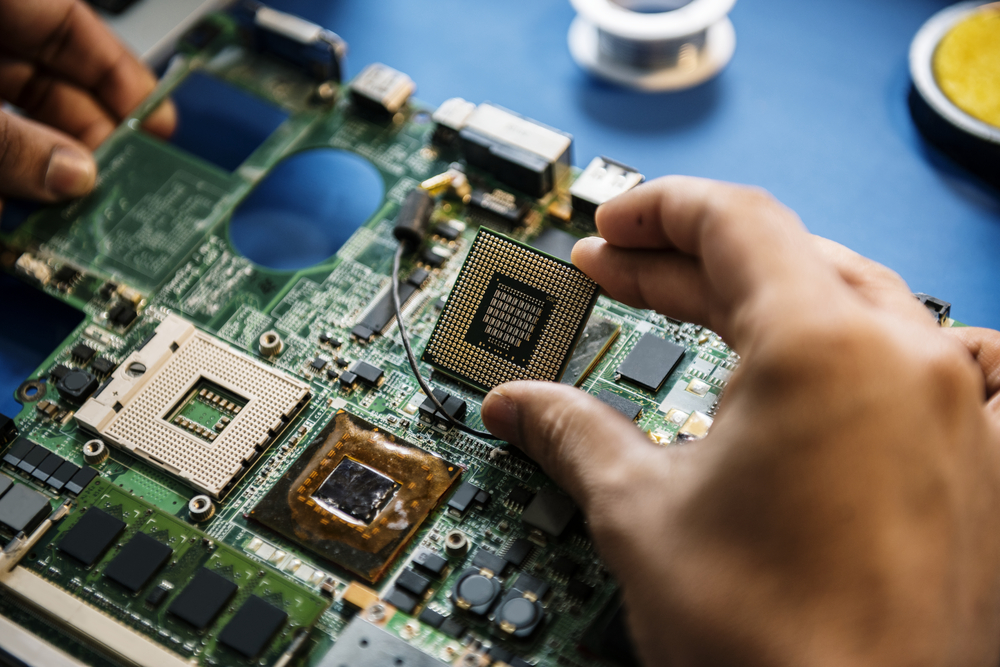
2. Microprocessors
Spin-off from: Integrated circuits
Mission: Apollo Program
Date: 1963-1972
Once again, NASA did not actually develop an integrated circuit–credited to electrical engineer Jack Kilby in 1958–but rather invented newer and more complex versions of it.
Indeed, it is easily argued that NASA’s Apollo Program launched the microchip revolution, with the administration buying more than 60 percent of America’s integrated circuits throughout the 1960s, deliberately allowing the industry to limit itself to mass production and stabilize it while few other markets existed.
One of the first high-profile applications of microchip technology was the Apollo Guidance Computer with its DSKY interface, which has been used to provide on-board computation and navigation control, as well as control over the command module and the lunar module spacecraft. Nowadays, integrated circuits can be used in almost every field of life, from cell phones and personal computers to microwaves and calculators, primarily due to the cheap processing and manufacturing of microchips worldwide.
It’ll be easy to channel this next one…..












































6 thoughts on “5 NASA Inventions Everyone Has in Their Home”
I worked for Nasa many years ago, i have seen many things i would never have seen in my lifetime.
I have said for years and years that NASA, and the space industry, need to make public all the “spinoffs” that have come from, and been generated by, the industry. I don’t believe that John Q. Public has any idea the number, and the importance and the benefits, derived from these discoveries in their daily lives. These include everyday items in the medical, technological, military, and many other areas which have filtered down, and benefited us all, but of which the average person is unaware,
If the person on the street became aware of how easier, safer, and in some instances, life-saving, our lives had become, they would put the space industry and its importance at or near the top of the budget list for America!
You are so correct! Our space program and NASA should be right at the top os list of programs to be funded!
It’s all about R & D, Research and Development. Figuring out how to accomplish something, and then building it in a way that consistently works. Research needs motivation, NASA and the space race provided it. The rest was great work by smart people.
NASA has been fighting for its budget for years, and it gets cut all the time.
My husband worked for NASA for many years under private contractors. I saw all the benefits of the Space Program from the 1960’s on. Thus, the benefits we gain from these programs and researches outweigh the costs of them. Science leads to more discovery. We need to fund it.
The golf ball description was not really clear – it could be read as “Golf balls weren’t dimpled until NASA developed a technique that Wilson adopted.” I don’t think that’s true.